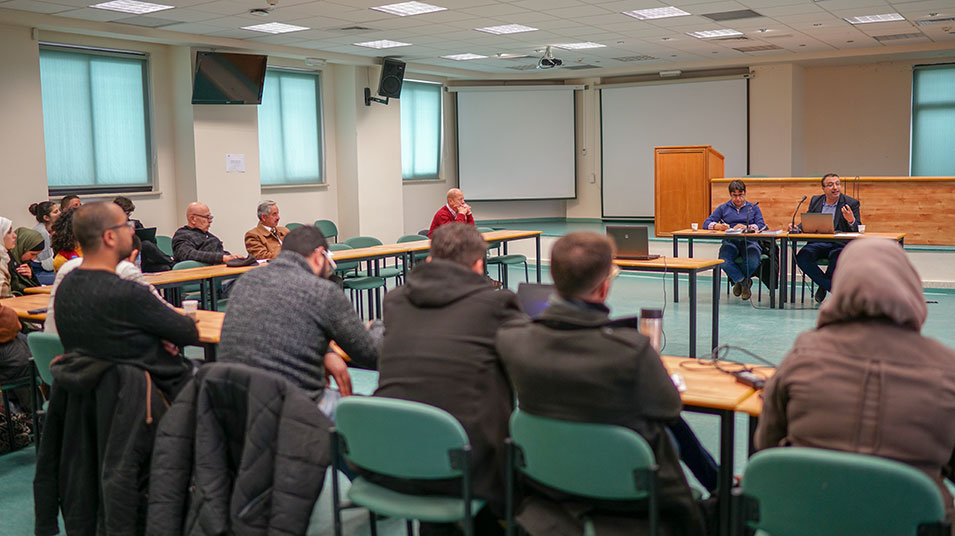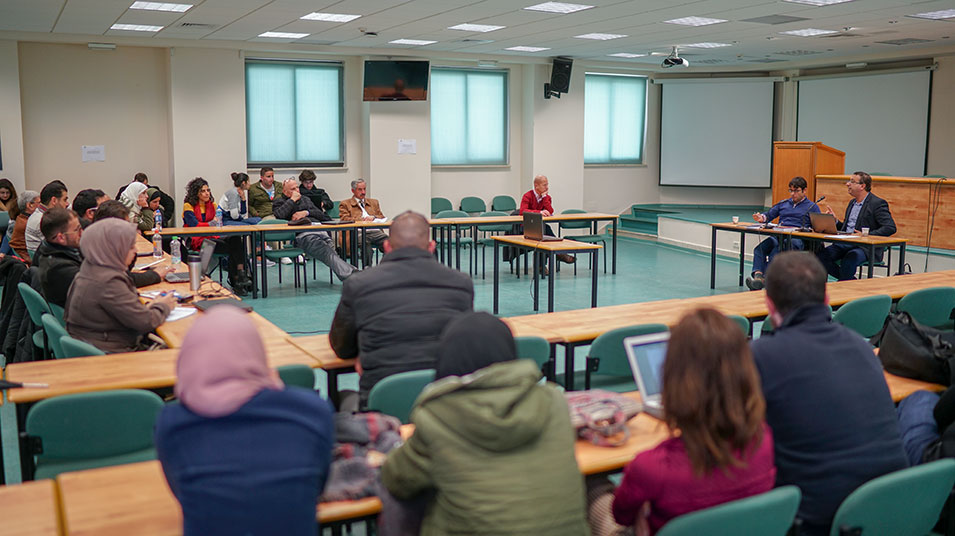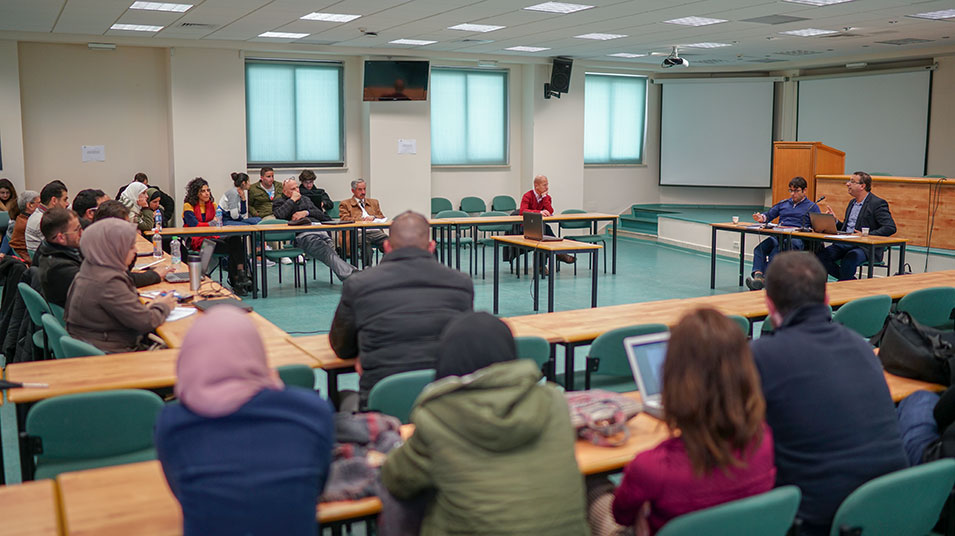Review of Israeli Elections 2019 focuses on reasons for right-wing dominance in Israel
Muhannad Mustafa, general manager of Mada al-Carmel-Arab Center for Applied Social Research in Haifa and a lecturer at the master’s program in Israeli Studies at Birzeit University, gave a critical analysis of the recent Israeli elections, held in April 2019.
As Benjamin Netanyahu, the current Israeli prime minister, won a fifth term in these elections, Mustafa pointed out that Israeli right wing parties have created a dominant bloc that has been able to control Israel’s politics even though numerous criminal allegations have been raised against Netanyahu.
Presenting the platform of the winning Likud party, Mustafa explained how this party’s ideology and politics have become dominant in Israel. He elaborated on the prevailing similarity of views among the dominant parties and demonstrated how most of the discourse of these political factions is compatible with Likud’s ideology. Citing Yahadut Hatorah (The United Torah Judaism) and the Israeli Labor Party, Mustafa illustrated how both parties’ discourse matches Likud’s discourse in critical issues such as the Palestinian cause and the elites inside Israel.
Mustafa pointed out that Netanyahu has been able to spread and strengthen right-wing ideology among the entire Israeli community. “Netanyahu has created an unprecedented phenomenon in Israel,” he explained, adding, “The election results were announced publicly even before election day. This shows that there are structural determinants that are strong enough to have caused the right-wing bloc to win for five years in a row. These determinants are creating uniformity and resemblance in the political rhetoric and policies of most political parties.”
“Netanyahu realizes the power of his party and of the right-wing bloc,” Mustafa asserted, explaining that the new lexicon that Netanyahu created reveals this. Natural political allies reaffirm his power and control as well as the rhetoric he used in his electoral campaign. Netanyahu appealed to many voters when he stated, “When I’m elected, there will be no Palestinian State,” and with his vow to annex settlements in the West Bank. Security concerns have long been the central issue in Israeli politics and, Mustafa asserted, are the main reason behind the increased vote count for Likud and Netanyahu in the 2019 elections.
As opposition blocs are not yet able to compete with right wing parties because they continue to make the mistake of adopting a right-wing discourse similar to Likud’s, Mustafa further explained, they fail to present a distinct alternative to the Likud agenda, which shows, again, that the right wing and Likud are dominant in Israel.
Netanyahu's Likud tied with Blue and White alliance of Benny Gantz, both winning 35 seats. The balance of power is held by smaller right-wing- and religious parties. They have previously sat in coalition with Likud and now will allow Netanyahu to form the next government again.









